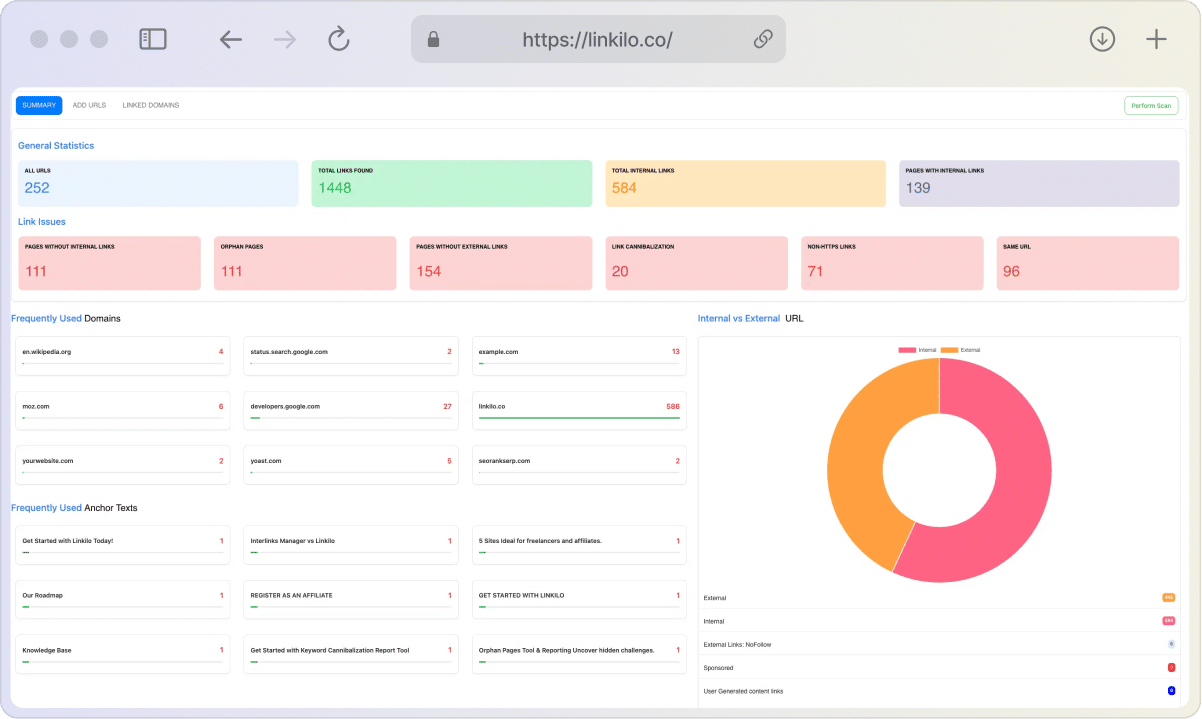Let’s be honest, SEO agency life can be hectic. Juggling client deadlines, fluctuating algorithms, and reporting… it’s easy to feel pulled in many directions at once. This is where having super-organized project management saves the day. It won’t magically make Google changes disappear, but it will streamline your processes, increase productivity, keep clients happy, and give you much-needed peace of mind.
This guide covers everything you need to build solid project management checklists into your SEO agency’s workflow. Let’s break it down by project phase:
Project Phase 1: Client Onboarding
A strong start sets the tone for a successful project. Here’s a checklist to get things moving smoothly:
- Pre-Onboarding Questionnaire: Before anything, send a well-structured questionnaire to potential clients asking about their business goals, previous SEO experience (if any), target audience, and competitors. This allows you to assess if you’re a good fit.
- Discovery Call: This initial call dig even deeper. Talk about challenges, expectations, budget, and project scope. Be upfront about potential issues and be clear about what you can realistically deliver.
- Formal Proposal: This detailed document should outline the agreed-upon services, pricing, milestones, KPIs for success, and clear timelines. Make sure all this is crystal clear before any contracts are signed.
- Kickoff Meeting: Gather your team, introduce key players to the client, reiterate project goals, and review those project timelines. Be open to questions from both sides for a truly collaborative kickstart.
Project Phase 2: SEO Audit and Strategy
It’s time to dig into the nitty-gritty! A deep-dive is crucial to make accurate recommendations:
- Technical SEO Audit: SEO audit tools Lik Screaming Frog, Sitebulb are invaluable. Review your client’s site structure, speed, duplicate content issues, broken links, potential site penalties, and more.
- Competitor Analysis: Identify your client’s top online competitors – both direct and indirect. Tools like Semrush and Ahrefs help. See what keywords they’re targeting, what’s working, and how you can outrank them.
- Keyword Research: Dive into relevant keywords for your client’s industry. Be thorough: search volume, competition, and intent for different phrases are crucial for a solid SEO strategy.
- Content Audit: Examine the client’s existing content. Look for strong assets to reuse, outdated pieces needing updates, and opportunities to create new relevant pieces to target those keywords.

Project Phase 3: Content Creation
Great content is the heart of successful SEO. Here’s how to keep it organized and optimized:
- Content Calendar: Schedule your content ahead of time to avoid scrambling last minute. It allows strategic timing to cater to industry events, customer cycles, and more. Popular tools for this include Trello and Asana.
- Topic Generation: Use your keyword research findings! Consider your client’s audience and what issues they need solving. Be creative! Blogposts are valuable, but think video scripts, podcasts, or infographics too.
- Content Briefs: Outline core points, keywords to target, and the intended tone of voice for each content piece assigned to writers. This keeps everyone on the same page and avoids excessive rounds of revisions.
- Editorial Workflow: Create clear steps for each content piece — ideation, drafting, editing, internal approval, client feedback, and final publishing. A smooth workflow saves headaches in the long run.
Project Phase 4: Implementation
It’s time to put the strategy to work. Let’s keep track of all the moving parts:
- Technical SEO Fixes: Address those issues flagged during your website audit – page speed, metadata, fixing broken links, etc. A strong technical foundation makes content and other efforts shine.
- On-Page Optimization: Your team ensures keyword placement in all the right spots: Title tags, headings, meta descriptions, even image alt text.
- Link Building: Reach out to relevant websites and publications for potential backlinks. Start by looking for mentions of your client’s brand that haven’t been linked, guest post opportunities, or creating resources others in the industry want to share.
- Local SEO (if applicable): Verify listings in business directories, ensure your client’s Google My Business profile is accurate and engaging. Local search matters for many businesses!

Project Phase 5: Reporting and Analysis
Metrics are crucial to keep clients happy and adjust your strategy based on real data:
- Reporting Tools: Choose one to track and display results. Many include Google Analytics, specialized SEO tools like Semrush or Ahrefs, or even Google Data Studio for customized dashboards.
- Metrics to Track: Don’t get lost in data overload! Focus on metrics directly tied back to client goals: Website traffic, organic search ranking, improved domain authority, leads generated, or increased conversions (sales, form submissions, etc.).
- Client Reporting Schedule: Agree on this upfront, whether it’s monthly, quarterly, or at certain milestones. Present actionable insights, not just raw data. Explain what success looks like and where improvement is needed.
Additional SEO Project Management Tips
- Communication is Key: Regular updates via phone or video calls keep the client informed. Set up collaboration tools like Slack or Basecamp for sharing smaller items and ongoing communication.
- Adaptability is a Must: SEO is constantly changing. Stay current, adjust strategies when needed, and manage client expectations throughout.
Handling Urgent Client Requests
Even with the best organization, urgent requests happen. Be ready to shift gears:
- Triage the Request: Is it truly urgent or just a matter of client anxiety? Understand the full scope of the ask and be realistic about what you can and can’t accommodate.
- Transparent Communication: If the timeline is unrealistic, don’t overpromise. Be honest with the client, offer alternative solutions if possible, and re-evaluate your project priorities.
- Manage Team Impact: Ensure the urgent request won’t derail other work commitments and deadlines. Assign it strategically, perhaps temporarily pausing less time-sensitive tasks.
- Debrief Afterwards: Once the situation has calmed, figure out why the urgency arose. Did you miscommunicate a timeline? Is the client chronically disorganized? Identifying the root cause avoids future fire drills.

Overcoming SEO Project Setbacks
No project goes completely without a hitch. Anticipate potential issues to minimize damage:
- Sudden Google Algorithm Update: These shake up search rankings. If your client takes a hit, reassess your strategy and adjust on-page optimization elements accordingly.
- Unexpected technical issues: If the client’s website crashes or a major issue stalls your work, document the impact and focus on solutions. Communicate the delay to the client with a revised timeline.
- Negative Online Reviews: Monitor the client’s online reputation. Work with them to address genuine customer complaints to safeguard their search image.
- Scope Creep: This is a classic risk. If the client wants additional services outside the agreed-upon project, politely re-direct them to the original contract. Discuss scope changes as potential add-ons or a future project phase.
Project Management Tools for SEO Agencies
Let technology become your partner in streamlining efficiency:
- Project Management: Asana, Trello, Basecamp, or ClickUp offer flexible workspaces and task tracking at different price points depending on your team size and needs.
- Communication: Slack, Microsoft Teams, or similar platforms foster internal team discussions and easy file exchange with clients.
- SEO Tools: Semrush, Ahrefs, Moz, or similar suites offer powerful features for various SEO tasks, reporting, and insights.
- Cloud Storage: Google Drive, Dropbox… ensure accessible storage for team members and allows convenient sharing of client files.
Building Expertise and Staying Current
SEO is a fast-paced field – committing to consistent learning is essential for sustained agency success:
- Reputable Industry Resources: Follow well-regarded blogs and sources like Search Engine Journal, Search Engine Land, and the Moz Blog to stay updated on latest trends and insights.
- Online Courses and Certifications: Platforms like Udemy or Coursera offer both free and paid options to improve your knowledge of specific SEO areas. Consider formal certifications, especially in Google products, to boost your team’s credentials.
- Industry Conferences: Attending events, even digital ones, creates opportunities to learn directly from leading experts and network with industry colleagues.
- Internal Training: Encourage cross-team knowledge-sharing with your team’s SEO superstars as teachers! Develop regular workshops to elevate staff knowledge and adapt to industry shifts.

Streamlining and Automating Project Workflows
Free up your team’s brain power for analysis and creative strategy by automating routine tasks:
- Email Sequences: Pre-schedule drip campaigns for new leads, onboarding materials, or post-meeting follow-ups for clients using tools integrated with your project management system.
- Social Media Scheduling: Manage posts using apps like Later or Hootsuite across all your client’s platforms saving time spent logging in and out of individual sites.
- Reporting Templates: Don’t start from scratch every report cycle. Set up templates, then automate the flow of data from your analytics tools to create clear and visually appealing reports.
- Zapier Connections: Check out Zapier as a way to link many different apps that you may use and “zap” information from one to the other to increase efficiency with repetitive tasks.
Client Communication: Tips for Transparency and Confidence
Smooth client communication reduces conflict and ensures everyone is working towards the same goal:
- Client Education: Offer ongoing client training in basic SEO concepts. A knowledgeable client understands the work involved and has more realistic expectations.
- Non-Technical Reporting: Avoid getting bogged down in jargon. Instead, offer a high-level summary of project performance focused on metrics relevant to the client’s business goals.
- Proactive Updates: Reach out before an issue becomes a crisis. A quick call or email about a possible delay or roadblock builds trust and keeps the client informed.
- Celebrate Wins: Even small victories (traffic boosts, improved rankings) are worth acknowledging to create momentum and positive association with your agency’s efforts.
Continuous Improvement for SEO Agency Success
Complacency is the enemy! Even top agencies never “finish” evolving their workflow. Proactively strive for:
- Post-Project Reviews: After campaigns end (or at strategic milestones), gather your team. What worked smoothly? What can you tweak for next time? Were there budget challenges to keep in mind for similar projects?
- Track Employee Satisfaction: A happy team leads to better work. Check in with employees about their workloads, tools they need, and opportunities for growth. Low morale can sabotage an otherwise solid project.
- Client Feedback Systems: Honest feedback allows you to address pain points quickly. A formal questionnaire or even direct, structured phone calls are useful beyond general praise or gripes.
- Time Tracking: Use detailed time tracking software if your project management platform doesn’t have in-depth features. Understanding where your team spends the most hours sheds light on hidden time-sinks and helps with cost analysis for future pricing decisions.
Additional Considerations
- Finding Your Niche: Specialization can set you apart. Is your agency best with enterprise-level SEO, Shopify sites, or specific industries like healthcare? Focusing your expertise lets you offer high-value tailored services.
- Pricing Considerations: Should you charge hourly, by project, or on retainer? There are pros and cons to each structure, carefully considering the type of work and clientele you attract.
- Partnership Potential: Could strategic partnerships with other agencies or freelancers make sense? Combining skills opens the door to larger projects, or can help fill knowledge gaps for your team.
Conclusion
Effective project management can often feel like the silent hero of successful SEO campaigns. It reduces stress, aligns expectations, and ultimately leads to happier clients and a streamlined process for your agency.
This isn’t a one-size-fits-all solution – these are starting points that you’ll likely customize and develop as you go. But most importantly, remember that clear communication and willingness to adapt go a long way!




